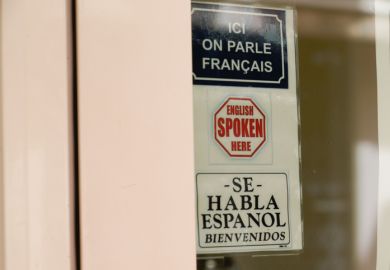Discover Society aims to overcome “a serious risk of a democratic deficit” and to offer the general public “a better understanding of the social context in which politics takes place”.
The magazine, which went live this week, already includes contributions on everything from sustainable consumption and 21st-century relationships to multilingual citizenship to “the rise of the British comedy snob”.
“Along with many others, we have lamented the absence of social research at the heart of public debate,” said co-editor John Holmwood, professor of sociology at the University of Nottingham.
“There is a ‘folk memory’ within the disciplines of sociology and social policy of the old days of New Society, which published [in this area] from its launch in 1962 to its demise in 1988 and had contributions from many British academics,” he said, adding that the new magazine sets out to fulfil a similar function through research-based articles, “viewpoints” (on current social issues), “policy briefings” and reports “on the frontline” of austerity Britain.
“We think that there should be a better understanding of the social context in which politics takes place,” Professor Holmwood went on.
“There is a serious risk of a democratic deficit if the drive toward evidence-based policy means that researchers focus on informing policy-makers, rather than the wider public.”
Another stimulus was the late Baroness Thatcher’s famous statement: “There is no such thing as society. There are only individual men and women, and there are families.”
Though families are “frequently invoked in political debates (especially ‘hard-working’ ones)”, co-editor Sue Scott, professor of sociology (and currently pro vice-chancellor) at Glasgow Caledonian University, argued that they are “frequently misunderstood and their varied nature misrepresented”.
Since setting up the magazine, Professor Holmwood reported that many organisations “have said to us that they had been thinking of doing this for some time, ‘but hadn’t found a business model; how have you done it?’ Answer: We didn’t look for a business model, we just did it!”
Register to continue
Why register?
- Registration is free and only takes a moment
- Once registered, you can read 3 articles a month
- Sign up for our newsletter
Subscribe
Or subscribe for unlimited access to:
- Unlimited access to news, views, insights & reviews
- Digital editions
- Digital access to THE’s university and college rankings analysis
Already registered or a current subscriber?




